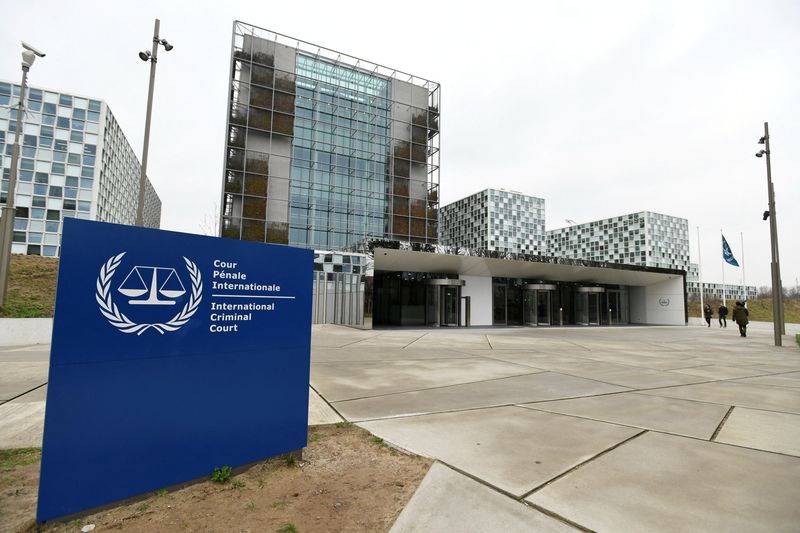KABUL (Reuters) - Afghanistan's Taliban foreign ministry said on Friday it "strongly condemns" and rejects the International Criminal Court's request for arrest warrants for two Taliban leaders.
In a statement, the ministry said the warrants, which accused the two leaders of the persecution of women and girls, were "devoid of a fair legal foundation, characterised by double standards, and politically motivated".
The ICC prosecutor announced on Thursday that he was pursuing warrants for Taliban supreme spiritual leader Haibatullah Akhundzada and for Abdul Hakim Haqqani, who has served as Afghanistan's chief justice since 2021.
Persecution has occurred across Afghanistan from at least Aug. 15, 2021 - the day Taliban forces captured the capital Kabul after a two-decade insurgency against the Western-backed government - to the present day, the prosecutor said.
The Taliban returned to power as foreign forces withdrew and have clamped down on the access of women to public spaces, work and education, including by shutting high schools and universities to female students.
The Taliban-led foreign ministry statement added: "It is regrettable that during the two decades of occupation in Afghanistan, this institution (ICC) turned a blind eye to the war crimes and crimes against humanity committed by foreign forces and their domestic allies."
Rights advocacy group Amnesty International said on Friday the ICC prosecutor's announcement was "an important development".
"This is a crucial step to hold accountable all those allegedly responsible for the gender-based deprivation of fundamental rights," said Amnesty Secretary General Agnès Callamard.

She added that Amnesty was also calling on the ICC prosecutor to reconsider a decision in 2021 to de-prioritise investigations into alleged war crimes by international forces during their 20-year presence in Afghanistan.
"This decision risks contributing to perceptions of a selective approach to international justice which prioritises the interests of powerful states and their allies over the right to justice of victims of crimes under international law," she said.